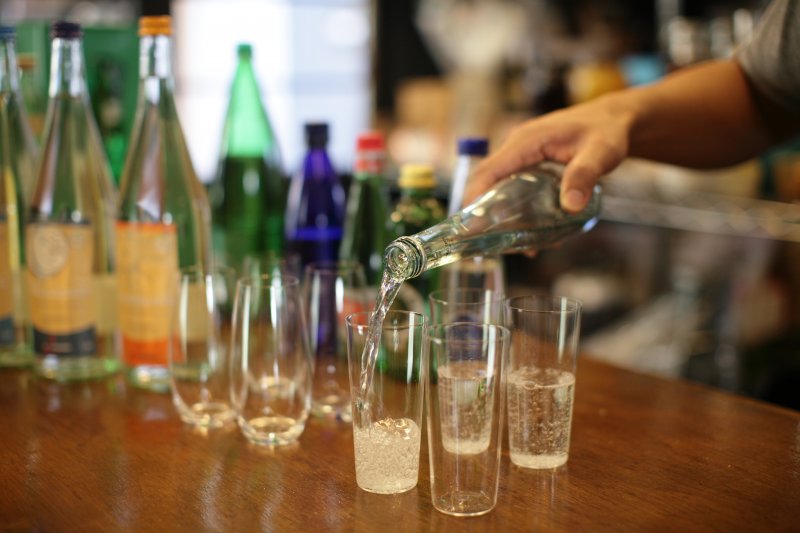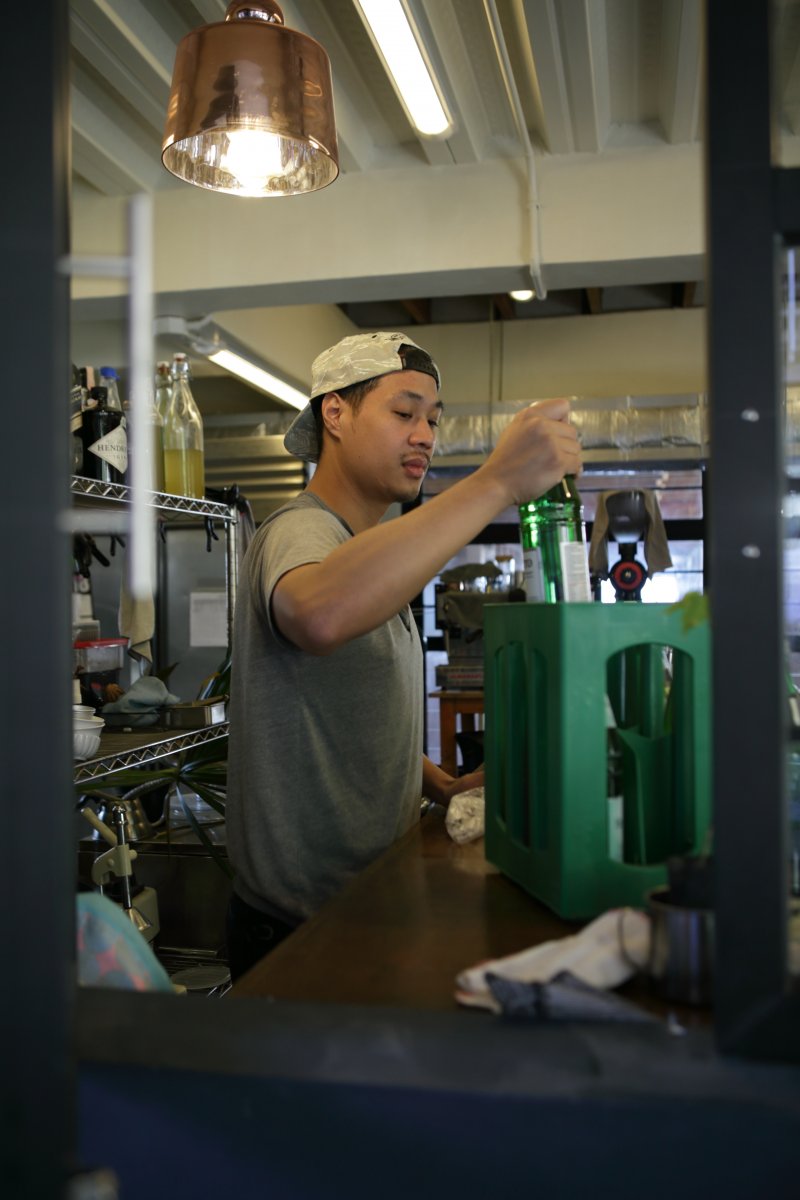To many people, water is just an everyday drink. But for Sly Samonte, it’s much more than that.
For the 35-year-old, water is a valuable commodity, one that holds information worth discovering and using. This inherent curiosity shared by many other beverage experts and enthusiasts has led to the growing population of certified water sommeliers in the world. Samonte is among the few from the Philippines.

Though he has carved a name for himself in the coffee industry, Samonte took a natural liking for water as a consequence of a shift to a healthier lifestyle. “I was still working in an office and at the same time, I was doing CrossFit and triathlon, so I was trying to cut sugar as much as possible,” he says. “So about six years ago, I gave up soda. I really like drinking root beer, but then I also started liking sparkling water but didn’t know the difference between this bottle and that bottle. So that became my treat. Instead of drinking plain water every day [as a replacement for soda], I’d have fizzy water. In Singapore, they have a couple of good fizzy waters so I was able to try them out and learn more about them.”
His interest grew stronger when he began brewing his own coffee and tea, drinks in which water is an important component. Driven by his hunger for knowledge—the same thing that led him to study coffee—Samonte enlisted in an institute in Germany called Doemens to learn more about water. “When I signed up, the course was only being offered in German, so I had to wait until they offered it in English.”
That day came over a year ago. For two weeks, he invested time in understanding European law, finding out how wells were built, getting acquainted with the different rock bases and how water travels through them, and knowing the manner in which minerals are extracted. “I had to understand the taste, the difference between various still and sparkling waters, plus their application in culinary and how to do pairing. We visited bottling plants too. And at the end, we had to pass a written and sensory exam to be certified.”
Sly Samonte admits to still being a student of the craft, though. He believes that he can gain even more in-depth knowledge of mineral water, and that there’s still much to consume to be more well-versed in food and beverage.
Much like a wine sommelier or a Master Cicerone (beer expert), a water sommelier should know everything about potable water—from tasting to pairing, and even serving. As the water geek cleverly illustrates, his job is a mix of a geologist who studies mineralogy (measured by total dissolved solids or TDS) and a beverage expert who knows how to taste. A water sommelier can identify the differences among types of water, to a certain degree, and explain why water tastes a certain way—from sweet to slightly acidic.
The Doemens Academy in Munich, Germany is a respected institute dedicated to education and consultancy directed to the beer business. It was the first to offer a professional beer sommelier course back in 2004. And since beer is composed of 90 percent water, its quality is crucial to beverage production.
“In Germany, there are over 300 wells of water,” adds Samonte. “And each of their beers is made with those particular kinds of water. Water affects the taste and fermentation of the beer, so they developed a program to understand the waters available in Europe.”

Chefs believe that their dishes are greatly influenced by the quality of their ingredients. It’s no different with baristas and their coffee. And that’s why Samonte takes advantage of this degree and uses it to brew better blends. The flavors of coffee are built around a lot of acids and oils, and minerals found in water help make them more or less evident to the palate.
Samonte is not the first and only Filipino water sommelier, but he definitely is one who puts his knowledge to good practice. By knowing how water gets naturally carbonated, for example, he gets to play in his lab in La Union (just next to his and partner Kiddo Cosio’s El Union Café), and come up with concoctions like housemade cream soda and ginger soda.
Samonte admits to still being a student of the craft, though. He believes that he can gain even more in-depth knowledge of mineral water, and that there’s still much to consume to be more well versed in food and beverage. It’s a good thing he loves to drink.
Originally published in F&B Report Vol. 15 No. 1










































